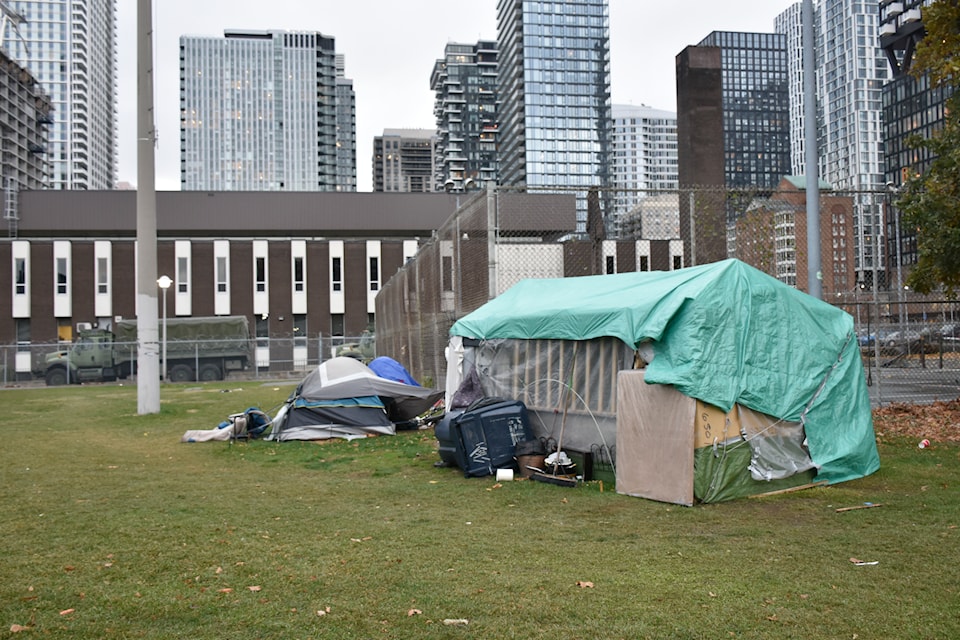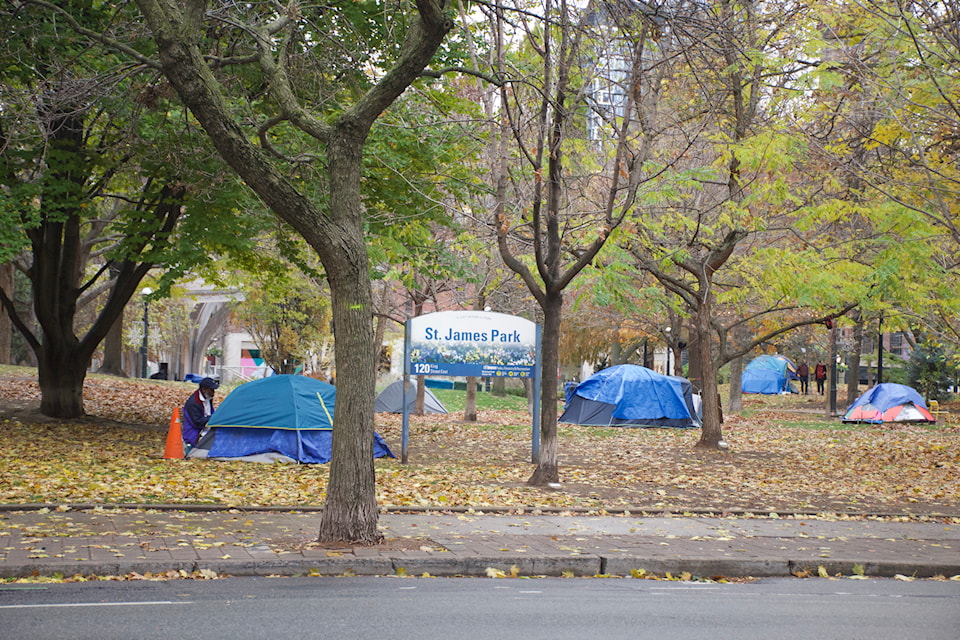Tina has been living on the streets of downtown Toronto for a while now. She said she would rather be in hell than on the streets. She said that one has to be careful who one hangs out with as there are many "messed up things" that occur.
“People are disappearing, a lot of people. You see them one day, the next day they’re gone,” said Tina, who did not want her last name disclosed.
“Everybody robs everybody. It’s a messed-up place to be. It’s a hard place to be, especially when you are homeless or whatever,” Tina said.
The 43-year-old woman, currently living on the streets in the Church and Queen Streets area of Toronto, said she has no friends. Instead, she has acquaintances because no one is to be trusted.
She said people on the streets don’t generally sleep, they only “nod off” because otherwise people will steal their few worldly items and then one has nothing to live off the next day.
She said mostly every woman living on the streets has been raped.
“I haven’t. Because I got my husband,” Tina said.
Tina said people were just grabbing tents that were given to them by churches and others and people started setting them up wherever they wanted.
She said there are a lot of empty apartment buildings, and yet they still cannot be housed, keeping about 11,000 people in Toronto on the streets, according to city numbers.
The city reported that in 2023, Toronto’s shelter system offers beds to more than 9,000 people nightly in shelters, including about 42 per cent of which are refugee claimants.
"Current demand for shelter space is so high that every night the city is unable to provide shelter to hundreds of people requesting a space. As a result, the city is seeing increasing levels of homelessness on the street, in encampments and on the City’s transit system,” the 2024 Toronto Shelter and Support report stated.
And now people like Tina and her husband do not only have to look over their shoulders for troublemakers, but they may have to watch out for Ontario Premier Doug Ford who has urged big city mayors to ask him to invoke the Notwithstanding Clause of the Charter of Rights and Freedoms to remove encampments.
Twelve Ontario mayors recently formally requested in a letter the Premier do that. They include the mayors of Barrie, Brampton, Brantford, Cambridge, Chatham-Kent, Clarington, Oakville, Oshawa, Pickering, St. Catharines, Sudbury and Windsor.
A stumbling block for municipalities was the similar 2023 Superior Court rulings in Waterloo and Kingston that found it was unconstitutional for a municipality to evict people living in encampments if there were no shelter spaces available for them.
Ford has offered to suspend encampment residents’ Charter-protected rights so that they can be removed from encampments.
The mayors requested the Ford government to “strengthen the existing system of mandatory community-based and residential mental health care and expand service to treat those who have severe and debilitating addictions.”
They said they would want a Drug and Division Court system implemented throughout the province to allow a meaningful focus on “rehabilitation as opposed to incarceration.”
The request to enact legislation that provides clear guidance regarding the open and public use of drugs being prohibited in the same manner as the open consumption of alcohol was also included.
Toronto was not a part of this letter and when questioned about the matter, the city’s Communications Advisor Elise von Scheel said.
“Encampments are a symptom of the housing affordability crisis, shelter demand that exceeds availability and other social crises such as mental health and drug toxicity,” von Scheel said.
She said the City’s approach to encampments seeks to put people’s human rights first.
“Street outreach staff and partners work 24 hours a day, seven days a week to connect with individuals living outside to help address immediate health and safety needs, building trust relationships and work with them toward indoor accommodations,” von Scheel said.
She said removing encampments without providing shelter or housing can displace people to other outdoor locations without addressing the root cause of their homelessness.
“Moving people into shelter spaces and housing achieves the best outcomes for people in encampments and surrounding communities,” von Scheel said.

Tina gripped her covered dolly cart that seemed full to near-bursting while standing on the sidewalk near St. Michael's Hospital on Queen Street. She said the government does not help the homeless and city workers tear down their tents. She said more than 50 people live in the encampment at St. James Park and even more up on Sherbourne Street.
“There were some near the church and some behind the hospital during the summer, but they took them down,” Tina said.
She said it would cause significantly more trouble when they take down encampments because there would be many people without a home unless they housed them.
Tina said even if the authorities were to take down the tents, people on the streets would end up pitching others. It's a cat-and-mouse pursuit as the homeless try to find a small homestead.
She said the government only helps out by “kicking everybody onto ODSP [Ontario Disability Support Program].”
Tina said they just hand people a cheque and do not care if they are housed or not and the average amount everyone gets is $300 monthly.
She said people get between $700 to $800 but they need to prove that they are addicts to receive those funds.
Tina said winter is going to be no different, there are still going to be people on the streets without a home, hungry, and they will still pull through it like they do every year.


